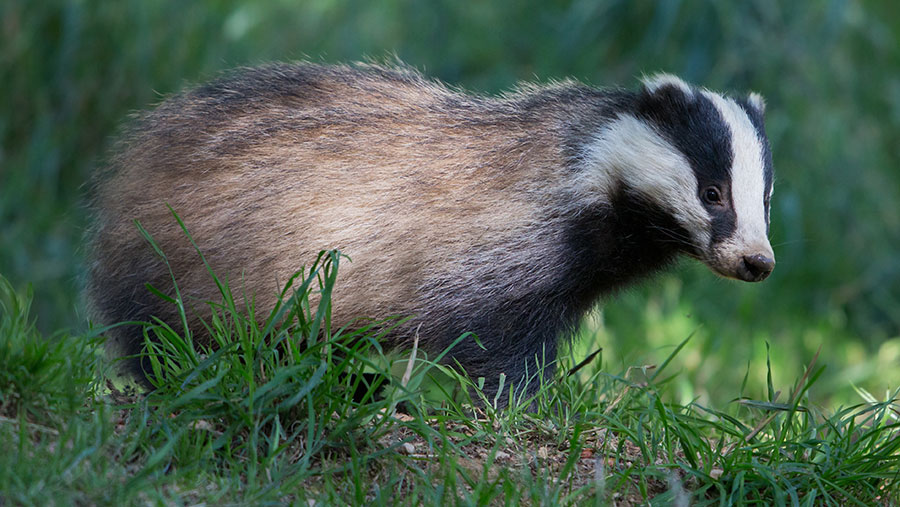Badger cull extended to 11 new areas in England
 © Inichetti/Adobe Stock
© Inichetti/Adobe Stock The UK government’s badger cull is being extended to 11 new zones in the high risk and edge areas of England in 2022, including parts of Hampshire, Buckinghamshire, Warwickshire, Oxfordshire and Northamptonshire.
The new zones began operating this year alongside 61 existing cull zones. The licensed culls will allow trained marksmen to remove between 23,652 and 67,801 badgers this autumn across all 72 zones.
This could bring the total number of badgers removed since licensed culling started in 2013 to more than 200,000.
See also: 5 ways to improve TB control in the UK
Defra says that badger culling is helping to lower TB rates in wildlife and, therefore, reduce the number of breakdowns of bovine TB in cattle herds.
But wildlife campaigners insist the government’s culling policy is expensive, inhumane, and ineffective.
Defra has confirmed that 2022 will be the last year that new intensive culling licences will be issued to tackle tuberculosis in cattle. However, tens of thousands of badgers will be removed over the next four years until culling is halted in 2026.
Although Defra maintains its badger control policy has been successful, it says it “does not want to continue culling a protected species indefinitely”.
Over the next few years, it aims to phase out badger culling and replace it with other aspects of its 25-year TB eradication programme, including improved testing and vaccination of both badgers and cattle.
Policing costs
Police costs incurred for the badger cull in 2021, funded by Defra, amounted to £3,589,000 across all participating forces. Culling operations took place between 31 August and 2 November last year.
Defra has also released a value for money analysis of the 2022 badger culls, which covers new intensive culls in the TB high-risk and edge areas.
Based on the results of the randomised badger culling trial, which was conducted in England between 1998 and 2005, Defra estimates the overall net benefits of culling since 2014 ranged between £122m (optimistic), £52m (central) and minus £38m (pessimistic).
Meanwhile, Defra says the average cost of a TB breakdown, expressed in 2022 prices, is £16,852, comprising £10,039 to central government and £6,813 to the farmer.
Defra says TB herd breakdowns can also cause “significant stress and ill health among the farming population”, although the impact of such stress “is difficult to quantify or value”.
A questionnaire of farmers under TB movement restrictions for a long period showed they had “significantly higher levels of stress” compared to those who had not experienced a TB herd breakdown.
Bovine TB costs taxpayers around £100m year. The latest official government figures for England show 24,398 TB-infected cattle were slaughtered in England in the 12 months to June 2022 – down 20% on the total of 30,347 recorded in the previous 12 months.
Changes to licensed TB unit rules welcomed
NFU Cymru has welcomed upcoming changes to licensed TB unit rules, which it says will provide greater flexibility for livestock producers.
First, the validity of a pre-movement test for cattle from TB-restricted holdings entering TB isolation units will be increased from 30 to 60 days.
Second, a pre-movement test will no longer be required for cattle moving directly between approved finishing units (AFUs) – with and without grazing and indirectly via approved TB-dedicated sales (orange markets). These movements will still need to be licensed by the Animal and Plant Health Agency in the usual way.
However, cattle (except calves younger than 42 days old) moved from TB-restricted (breakdown) herds to AFUs directly or via orange markets will still require a negative tuberculin skin test within 90 days before the movement.
The changes will apply from 31 December this year in both England and Wales.
NFU Cymru TB focus group chairman Roger Lewis said: “This is a welcome announcement from Welsh government and these small steps will enable greater flexibility for producers.
“It also demonstrates how working with the farming industry in partnership can deliver outcomes that benefit everyone while maintaining a dedicated focus on our shared goal of TB eradication.”
NFU Cymru believes licensed units such as AFUs are a vital avenue of sale for farms who find themselves under TB movement restrictions.
